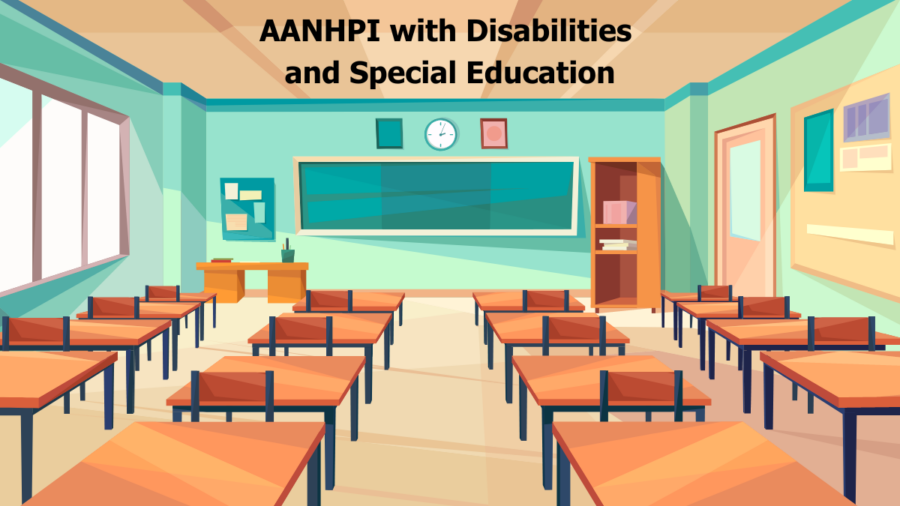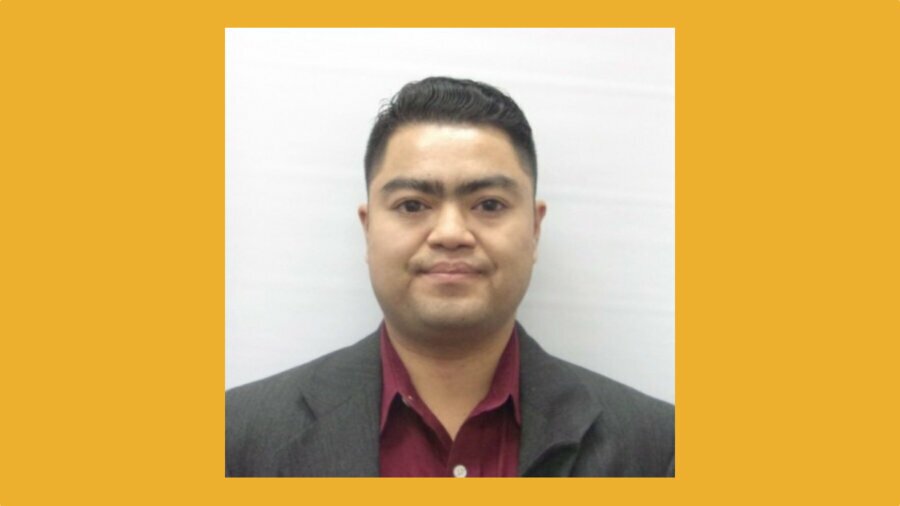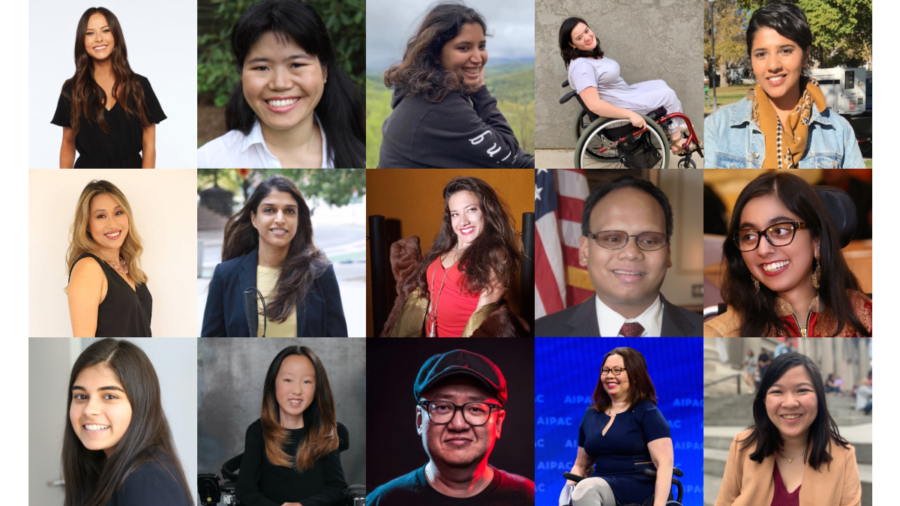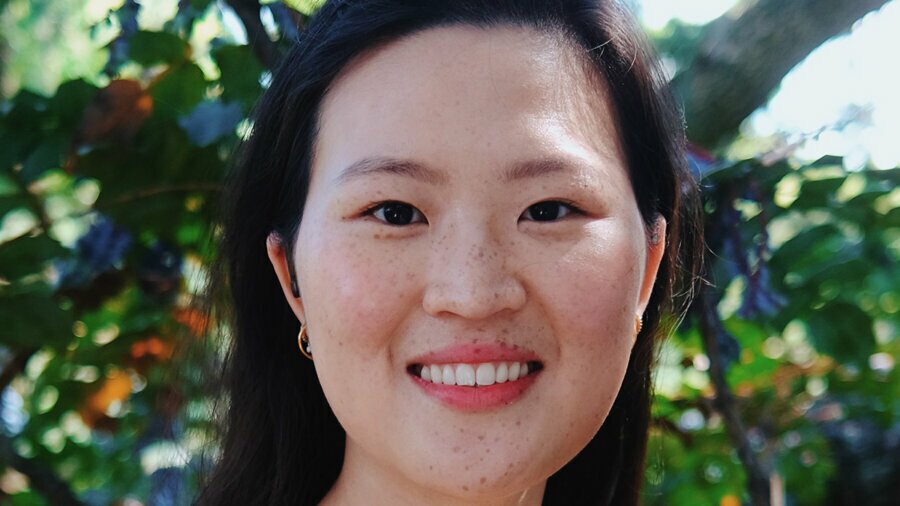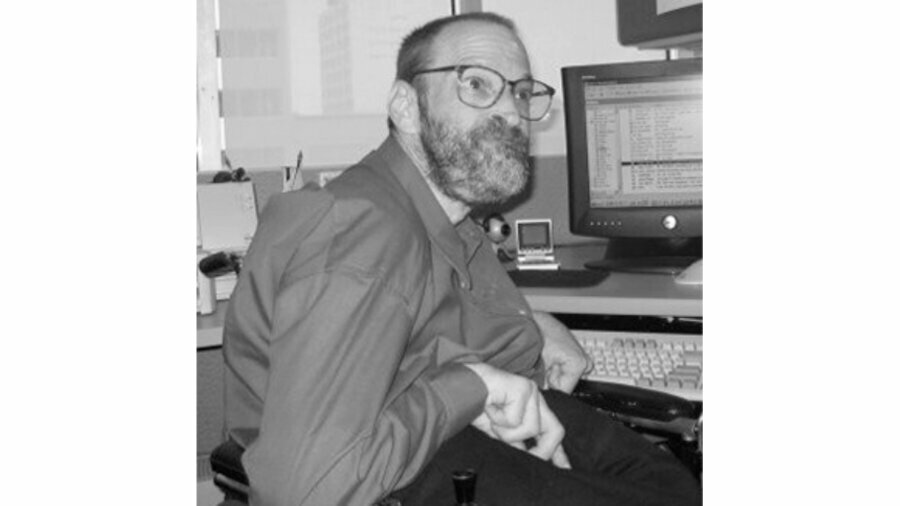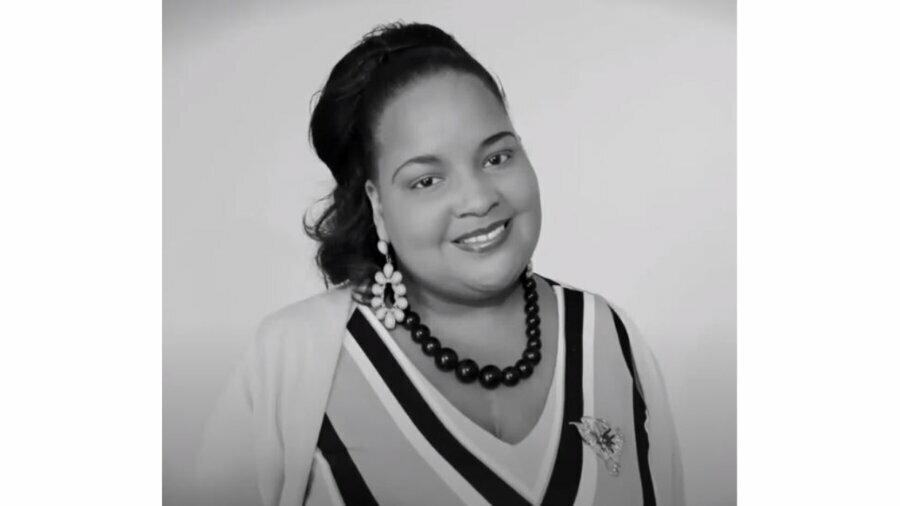Los Angeles, CA, June 14 – For the second year, RespectAbility is proud to announce the recipients of its annual awards recognizing individuals working to advance opportunities for people with disabilities. Elizabeth Kim is the recipient of the 2023 Justin Chappell Memorial Award and Nicole Homerin is the 2023 Steve Bartlett Award recipient. Each will receive $1,000 and be honored on stage at RespectAbility’s 10th Anniversary Celebration, sponsored by Wells Fargo, in Los Angeles on July 27. [continue reading…]
News
Data Corner for May 2023
Asian American & Pacific Islander Heritage Month
In celebration of Asian American and Pacific Islander Heritage Month, RespectAbility recognizes the contributions of Asian Americans and Pacific Islanders (AAPI) to our society.
According to the Annual Disability Statistics Compendium, there are 18,814,944 Asian Americans living in the United States. Out of that number, 1,454,941 have disabilities. The states with the largest population of Asian Americans with disabilities are California and New York, which have 509,446 and 131,682 of AAPI with disabilities in residence, respectively.
A 2021 report from the New American Economy research fund found that the AAPI community is the fastest-growing minority group in the United States. In the last decade, the AAPI community grew by 25.5%, contributing to about 20% of the total population growth in the country. In 2019, AAPI households brought in $783.7 billion and were able to contribute $167.9 billion in federal taxes, and $72.5 billion in state taxes. However, according to the same report, the AAPI community still had about $543.4 billion in purchasing power after taxes.
This is the very definition of a growing and thriving community, and yet it is clear that stigma and bias continue to result in under-diagnosis of disabilities in the community, leading to gaps in outcomes. [continue reading…]
AANHPI Students Are Underrepresented In K-12 Special Education
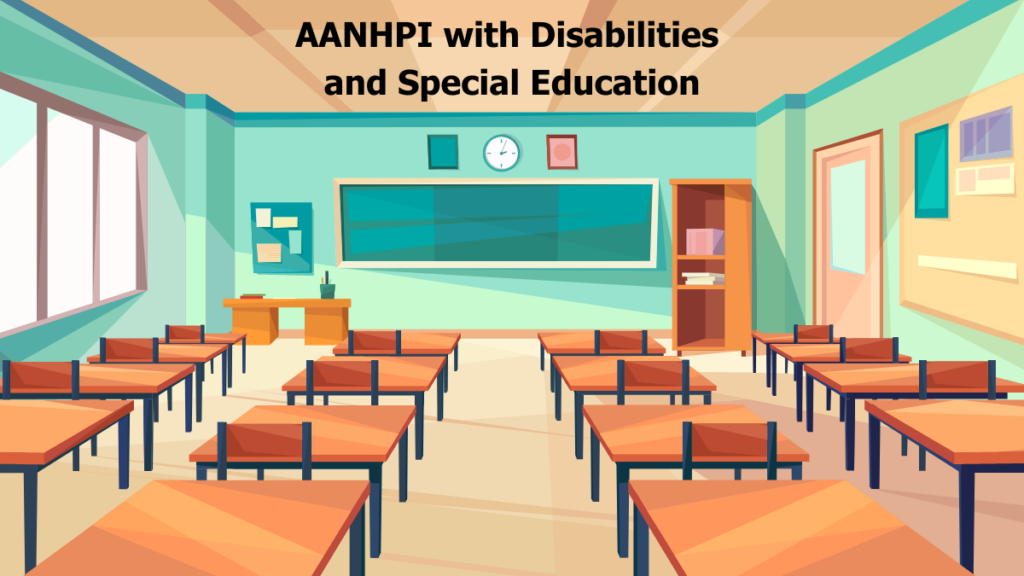 Asian American and Native Hawaiian/Pacific Islander (AANHPI) students are the least likely of all races to receive special education services. According to the National Center for Education Statistics, about 15% of all public school students are in special education, compared to only 8% of Asian American students. The gap is less drastic for Native Hawaiian/Pacific Islander students at 12%, but it is still significant. This gap means it is very likely that AANHPI students who would benefit from special education services are not receiving them.
Asian American and Native Hawaiian/Pacific Islander (AANHPI) students are the least likely of all races to receive special education services. According to the National Center for Education Statistics, about 15% of all public school students are in special education, compared to only 8% of Asian American students. The gap is less drastic for Native Hawaiian/Pacific Islander students at 12%, but it is still significant. This gap means it is very likely that AANHPI students who would benefit from special education services are not receiving them.
Previous research and opinion articles have blamed this discrepancy on AANHPI families’ resistance to special education due to stigmas about disability. They argue that disability is often seen as a weakness in AANHPI culture, which may cause students or their parents to hide the disability. While this may be true in some AANHPI families, we cannot assume that this is the primary explanation. When we buy into the culture-blaming narrative, we miss critical structural factors preventing AANHPI students from accessing the education they need, including racial discrimination and language barriers. [continue reading…]
Interview with Dennis Tran
 On May 9, 2023, I had the privilege to interview my dear friend and colleague, Dennis Tran. I worked with Dennis on the Fox Family Foundation’s Inaugural Vision Fair in October 2022, and we were both Fellows in RespectAbility’s National Leadership Program.
On May 9, 2023, I had the privilege to interview my dear friend and colleague, Dennis Tran. I worked with Dennis on the Fox Family Foundation’s Inaugural Vision Fair in October 2022, and we were both Fellows in RespectAbility’s National Leadership Program.
As May is Asian American Native Hawaiian and Pacific Islander (AANHPI) Heritage Month, we are spotlighting our partners doing fantastic work in the intersection of the Asian American Pacific Islander (AAPI) and disability identities. As the Director of Partnerships at the Asian Americans with Disabilities Initiative (AADI), Dennis spoke with me about AADI’s critical work and how his lived experience as an Asian American with a disability creates space for others to share their story.
Learn more about AADI on their website.
Q: How has your AAPI heritage and disability identity influenced your career goals and aspirations?
A: My career goals were shaped by thinking about advocating for myself and the multiple communities I identify with. To bring forth the injustice in the world and tie in my neurodiversity to uplift others in the community to speak up and find their place in society. [continue reading…]
Celebrating AAPI Heritage Month 2023
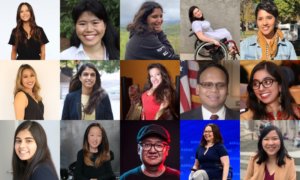 The intersection of identity with disability uniquely affects people of all races. For Asian-Americans and Pacific Islanders (AAPI) this is compounded by the fact that AAPIs are a wildly diverse ethnic group and have an equally diverse range of experiences. With a population expected to surpass 40 million by 2060, and 1.3 million disabled, it is important to understand the intersection between AAPI identity and the disability experience. There is no better time to address these issues than in May while we observe AAPI Heritage Month. Historically AAPIs, especially AAPIs with disabilities, have been underrepresented in disability studies. Surveys on disability often lump this diverse group together as “Asian,” which includes 20 distinct nationalities in the US Census. Despite the size and vibrancy of the AAPI population, the visibility of AAPIs with disabilities remains low. Disclosure of disability is essential for access to services, and yet disclosure among AAPIs is lower than in other ethnic groups.
The intersection of identity with disability uniquely affects people of all races. For Asian-Americans and Pacific Islanders (AAPI) this is compounded by the fact that AAPIs are a wildly diverse ethnic group and have an equally diverse range of experiences. With a population expected to surpass 40 million by 2060, and 1.3 million disabled, it is important to understand the intersection between AAPI identity and the disability experience. There is no better time to address these issues than in May while we observe AAPI Heritage Month. Historically AAPIs, especially AAPIs with disabilities, have been underrepresented in disability studies. Surveys on disability often lump this diverse group together as “Asian,” which includes 20 distinct nationalities in the US Census. Despite the size and vibrancy of the AAPI population, the visibility of AAPIs with disabilities remains low. Disclosure of disability is essential for access to services, and yet disclosure among AAPIs is lower than in other ethnic groups.
Reticence to disclose a disability in the AAPI community can be due to the internalization of harmful stereotypes. One of the most pervasive of these stereotypes is the “model minority” myth, in which AAPIs are described as being more smart, successful, or hardworking than other minority groups. This idealized image is limiting, can create a divide between AAPIs and other minority groups, and does not allow room for the disability experience. The “model minority” myth masks or disguises the disability experience of AAPIs and has contributed to a lack of research and debate about this issue. The social pressures of conformity may also increase the reticence of individuals to disclose disability status. This can reduce access to medical assistance, employment accommodations, and other disability services. Once disabled AAPIs do gain access to disability services, some—particularly those who are first or second-generation immigrants—encounter language barriers that can further reduce their access to services, a problem that is only amplified by lack of culturally competent service providers. [continue reading…]
Resource Guide: WGA Strike
 On May 2, 2023, after failing to come to an agreement with the Alliance of Motion Picture and Television Producers (which includes 350+ TV and film studios and production companies), the Writers Guild of America (WGA) went on strike – stopping all writing projects and bringing many Hollywood productions to a halt.
On May 2, 2023, after failing to come to an agreement with the Alliance of Motion Picture and Television Producers (which includes 350+ TV and film studios and production companies), the Writers Guild of America (WGA) went on strike – stopping all writing projects and bringing many Hollywood productions to a halt.
Since 2018, screenwriters’ pay has gone down about 20%. Additionally, writers are no longer receiving residuals (a percentage of the profit a show makes after it premieres) after their shows go on streaming platforms. Many writers are struggling to make enough money to live. With more than half of American households “cutting the cord” and only buying streaming services, along with the rise of AI technology capable of writing scripts, the concerns around writers’ wages only continue to grow. Writers are seeking a new contract with studios to protect their livelihood given the changing technological landscape.
The major WGA demands include:
- Increased minimum compensation for writers
- Residual agreements for streaming platforms
- Addressing the abuse of mini-rooms – a small writers’ room that works for a short period of time before a show has been approved by a studio allowing studios to pay writers less money and not keep writers on contract
- Increased contributions to health funds
- Regulated use of material made by AI
Learn more: Full List of WGA Demands. [continue reading…]
Dear Asian Americans: Why are we closed off to disability?
If you knew your baby had a disability, would you still keep it?
Two students from my church fellowship debated this question, as I sat quietly between them. My body tensed up, preparing for their answers.
No… I don’t think I would. I would want my child to be healthy and happy.
Well, if God made all of us in His image… shouldn’t we keep the baby?
They turned towards me with sheepish smiles, as if they just remembered I was one of those babies. My eyes widened, and I hastily raised my hands.
No, no, don’t worry! I won’t get offended, please don’t let me stop you from talking about this. I understand where you’re both coming from.
Part of that was a lie.
I was offended, but too numb to register the emotion because I heard variations of this conversation growing up. The responses were similar. No, we want them to be healthy. With genetic engineering, we could remove the defective gene! No, I don’t want my child to have so much suffering in her life. Well, I don’t know… What do you think? I leaned towards “no,” too, until I learned about ableism years later.
I was born deaf to hearing immigrant parents and received bilateral cochlear implants, my first one at thirteen months old, my second at ten years old. As a triple minority, one of the biggest challenges is figuring out how to show up as you are in different spaces. No matter where I go, I’m a woman in a man’s world. I’d feel excluded not only from the AAPI community because of my disability, but also from the disability community because I’m a person of color, which affected my mental health. Over time, the lights in my mind dimmed. Once dark, beasts of all kinds emerged.
In Memory of Neil Jacobson
 I met Neil and Denise Jacobson 20 years ago when I was in law school. The reform movement of Judaism was gathering together a group of its leaders with disabilities. I was already pretty jazzed to be invited into such a crowd at the ripe age of 22, but I was blown away by this dynamic power couple. Neil was still in banking then, and it really meant something to me to see someone else with cerebral palsy with professional success.
I met Neil and Denise Jacobson 20 years ago when I was in law school. The reform movement of Judaism was gathering together a group of its leaders with disabilities. I was already pretty jazzed to be invited into such a crowd at the ripe age of 22, but I was blown away by this dynamic power couple. Neil was still in banking then, and it really meant something to me to see someone else with cerebral palsy with professional success.
We stayed in touch. When I left law to go into business for myself, Neil was constantly checking in, sharing his own business ideas, and asking about me. For years before I joined RespectAbility, Neil pressured me to move to California. He knew things would be better for me here, but somehow I never quite understood that the regional center program, which provided all of his independent living support, would support me. When I did finally move here, he was a little disappointed that I moved to “Hell-A” as he called the city in which I live. In fact, it wasn’t until sometime last year that he finally accepted that I was not going to move to his beloved Northern California, but he was happy I was here. He helped me to get regional center services. Now I have the best quality of life that I ever had, and I can thank Neil for it, among others. [continue reading…]
Tributes from RespectAbility Board and Staff to Neil Jacobson
“I am heartbroken over Neil’s passing. He was a giant among us, and the enduring nature of his pioneering legacy will serve as an ongoing testament to the power of just one person to make the kind of difference whose ripple effects will last for generations.
Whether through his leadership in faith inclusion, his tireless and successful efforts to increase economic empowerment of countless members of the disability community, his impact as Vice Chairman of what was then the President’s Committee on the Employment of People with Disabilities in the Clinton Administration, his achievements in executive leadership at Wells Fargo, his indelible impact on the Independent Living Movement, his international work to change lives around the world (including in Uganda at an organization that bears his name), his groundbreaking work at the World Institute on Disability, or through his work as an early Board Member here at RespectAbility, the result was always the same. Namely, everything in which he was so deeply involved benefited indelibly. [continue reading…]
World Lupus Day: Kaamilah Gilyard, Reclaiming Her Shine
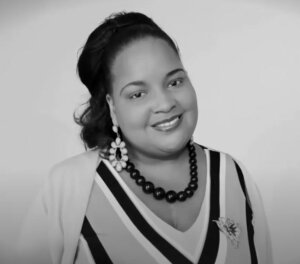
Kaamilah Gilyard
Kaamilah Gilyard always dreamed of becoming an actress. Just when she was getting ready to show the world her talents, she was diagnosed with Lupus, a chronic autoimmune disease that causes the immune system to attack the body. Her journey with Lupus has not been easy and has affected every aspect of her life, including her acting, education, job security, family, and relationships. Kaamilah used the diagnosis as motivation to prioritize her health. Kaamilah says she is a spiritual person, and believes that “God gives His hardest fights to His strongest warriors.” She is one of them, fighting not just for herself but for others with Lupus as well.
Kaamilah’s advocacy work started while she was hospitalized for more than a month. After she recuperated with at-home care, she contacted the Lupus Foundation of Pennsylvania, and they connected her with a local foundation. She spoke to State representatives and let them know that more research funding was needed for Lupus. She made it her personal goal to meet them at the State Capital, saying “I found my voice and have not shut up since.”
Kaamilah has visited Washington, D.C. on several occasions to speak with Senators and Representatives to push bills through. She was the inaugural speaker at the Congressional Lupus Caucus in 2012. She also spoke in Albany, New York, to declare May National Lupus Awareness Month. She has worked with the FDA, the Lupus Research Alliance, and the Multicultural Lupus Taskforce to get people of color and underrepresented communities involved in clinical trials. [continue reading…]




